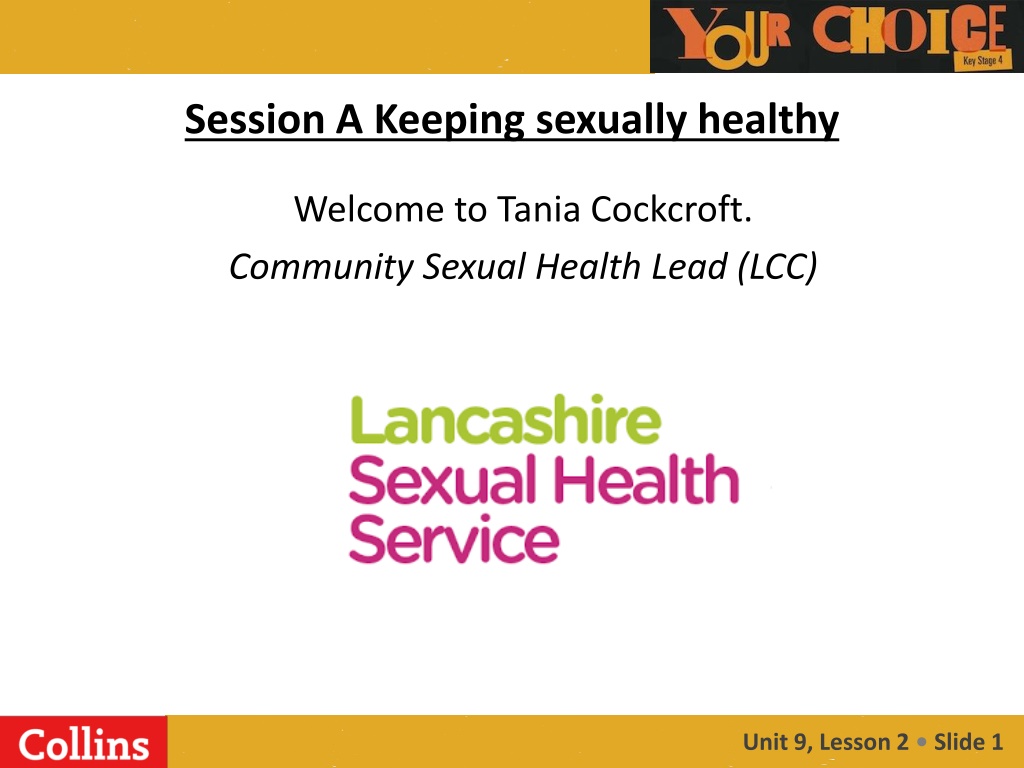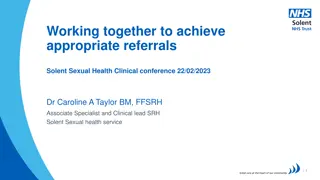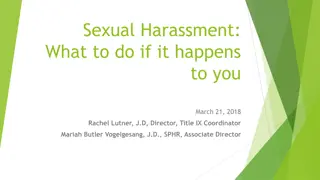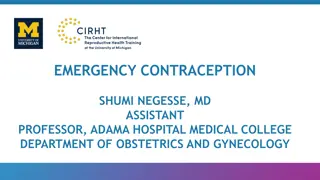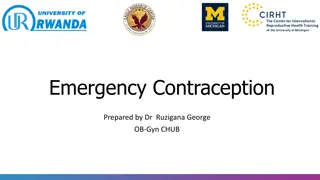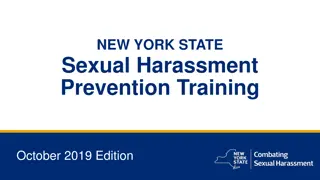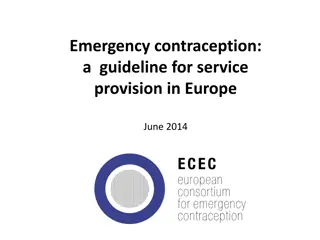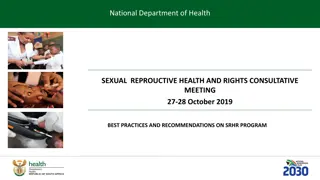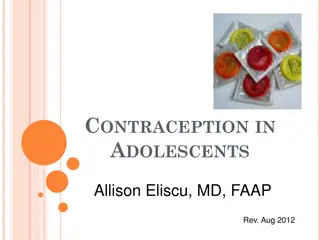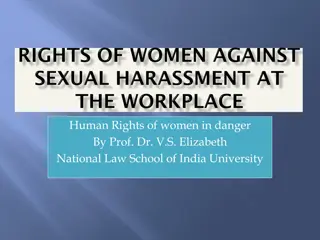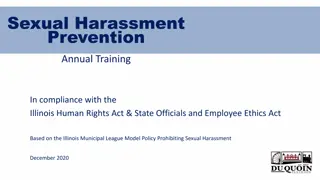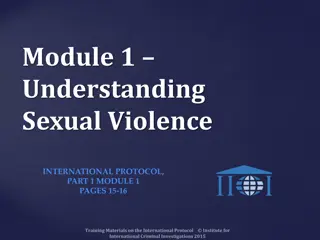Understanding Sexual Health: Contraception and STI Prevention
Exploring the importance of sexual health, this content delves into the various methods of contraception and highlights the role of protection against sexually transmitted infections (STIs). It emphasizes the need for regular screenings, seeking professional advice, and using barrier methods like condoms to maintain sexual well-being.
Uploaded on Jul 10, 2024 | 0 Views
Download Presentation

Please find below an Image/Link to download the presentation.
The content on the website is provided AS IS for your information and personal use only. It may not be sold, licensed, or shared on other websites without obtaining consent from the author. Download presentation by click this link. If you encounter any issues during the download, it is possible that the publisher has removed the file from their server.
E N D
Presentation Transcript
Session A Keeping sexually healthy Welcome to Tania Cockcroft. Community Sexual Health Lead (LCC) Unit 9, Lesson 2 Slide 1
Starter task In KS3 Science and in Year 9 Life skills you will have spent some time looking at types of contraception and STI s. Question Which types of contraception prevent people from catching STI S? Unit 9, Lesson 2 Slide 2
Keeping sexually healthy 1. It is advisable to go to a sexual health clinic before you become sexually active so that you can get advice from professionals on the best contraceptives to use when the time is right. As with your physical and mental health, you also need to look after your sexual health. If you develop any pain, rashes, redness, swelling or itchiness, always get this checked out at a sexual health clinic or a doctor s surgery. Some STIs (sexually transmitted infections) do not have any symptoms at all, so it s a good idea to get checked out at least once a year if you are sexually active, even if you have no symptoms. If for any reason you have unprotected sex, make sure you are tested for STIs. Always make sure both you and your partner have a sexual health screening before you begin having sex together. 2. 3. 4. 5. Unit 9, Lesson 2 Slide 3
Protection against STIs and pregnancy Most methods of contraception are designed to prevent pregnancy (birth control) rather than to protect against catching or passing on a sexually transmitted infection (STI). The only contraception that prevents pregnancy and stops the spread of STIs is condoms. Dams can also help to protect against STIs but not pregnancy. Both of these are called barrier methods. Oral sex can also transmit STIs between people. A dental dam is a square latex sheet which can be used during oral sex to cover the genitals or anus. They come in a variety of colours and sizes, and can be made out of other materials if someone has a latex allergy. Continued Unit 9, Lesson 2 Slide 4
Protection against STIs and pregnancy There are many different types of birth control (contraception), which suit different people for different reasons. When you feel that it is the right time to become sexually active, go to the GP or to a sexual health clinic to discuss your choices. The GP or sexual health advisors will be able to help you choose the best option. Many couples go to the clinic together to do this, but it is fine to go alone. Unit 9, Lesson 2 Slide 5
Under 16s Sexual health services are free and confidential, and you can access them even if you are under 16 years old. This confidential service means you can keep yourself sexually safe. The doctor or nurse would only tell someone else about the consultation if they feel that you are unsafe in any way or that your welfare is at risk. Unit 9, Lesson 2 Slide 6
Contraceptive methods Contraceptive methods that you have to use and think about regularly or each time you have sex: Unit 9, Lesson 2 Slide 7
Contraceptive methods Contraceptive methods that don t depend on you remembering to take or use them: Unit 9, Lesson 2 Slide 8
Contraceptive implant or injection Combined pill, patch and IUD. IUD/IUS, Implant or injection Unit 9, Lesson 2 Slide 10
External condoms and dams Pill, implant, injection and condoms/dams It is important to remember that both sexual partners should be screened if they stop using barrier methods. Unit 9, Lesson 2 Slide 12
Emergency contraception Emergency contraception, often referred to as the morning after pill , can be taken if a woman or girl thinks they may be at risk of pregnancy due to unprotected sex. The pills have to be taken within 3 5 days, depending on the pill, and they can cause someone to feel ill (bad tummy/sickness) and bring on their period earlier. An IUD or coil can also be used, and can be left in place for ongoing contraception. Unit 9, Lesson 2 Slide 13
Problem page scenarios Discuss the following problem-page questions with a partner, and then write a response. My partner doesn t want to use a condom. What should I do? I don t know how to talk to my new partner about contraception. What should I do or say? Unit 9, Lesson 2 Slide 14
Complete the what have you learned section. This may also be in session E. Unit 9, Lesson 2 Slide 15
